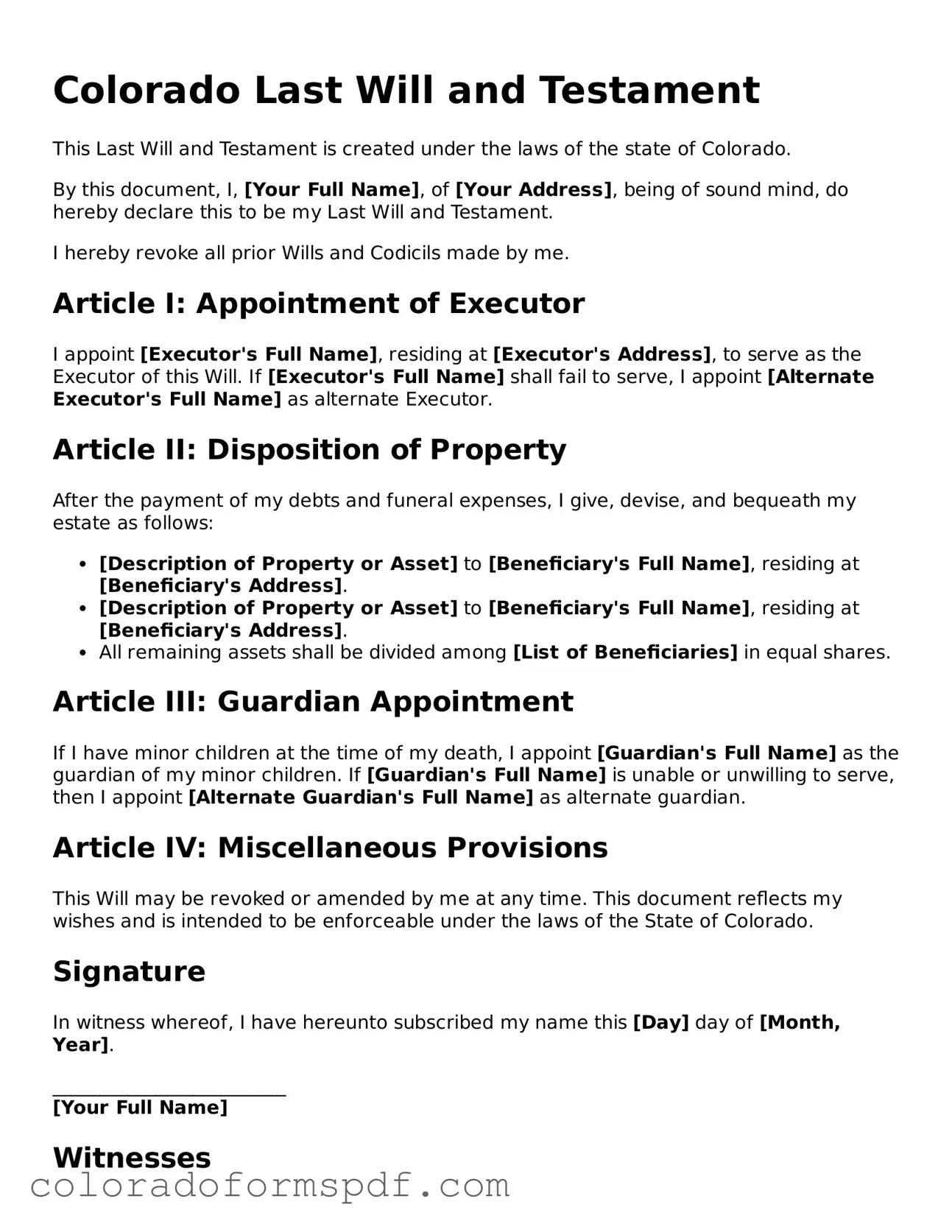Official Last Will and Testament Template for Colorado State
A Colorado Last Will and Testament form is a legal document that outlines how a person's assets and affairs should be managed after their death. This form allows individuals to specify their wishes regarding property distribution, guardianship of minor children, and other important matters. Completing this document ensures that your intentions are honored and can help avoid disputes among surviving family members.
Get Document Online

Official Last Will and Testament Template for Colorado State
Get Document Online

Get Document Online
or
Download PDF
Quick form completion starts here
Edit and finish your Last Will and Testament online, then download.